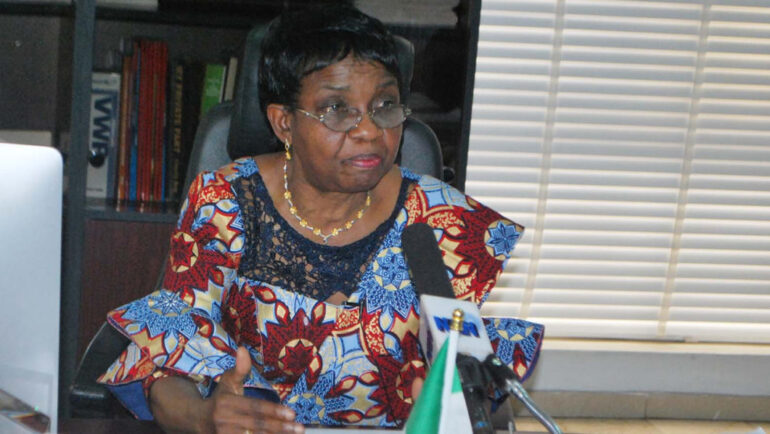The National Agency for Food and Drug Administration and Control (NAFDAC) has weighed in on the ongoing debate surrounding genetically modified organisms (GMOs), assuring Nigerians that GMO foods are safe for consumption, as long as they are properly labelled and meet regulatory standards.
Speaking in an interview on Channels Television on Thursday, NAFDAC’s Director-General, Prof. Mojisola Adeyeye, said that while GMOs are often misunderstood, they are not inherently harmful.
“GMOs are genetically modified foods, and they are not bad for us—depending on the type of food and whether proper safety measures have been followed,” she said.
Prof. Adeyeye, a pharmacist and academic, stressed the importance of transparency in food labelling, noting that consumers should have the freedom to choose whether to consume GMO foods.
“Labelling is essential. When you go into grocery stores, you’ll often see labels for ‘organic’ foods. In the same way, foods containing GMOs should be clearly marked to give people a choice.”
Regulatory oversight
She explained that NAFDAC works closely with the National Biosafety Management Agency (NBMA), the body primarily responsible for evaluating and certifying the safety of GMO products in Nigeria.
“We have a Memorandum of Understanding with NBMA. They are tasked with ensuring that GMO foods are safe, of high quality, and efficacious,” Adeyeye said. “NAFDAC does not approve any GMO product without NBMA’s certification that due diligence has been done.”
‘I look at the label’
When asked what consumers can do to ensure the food they consume is safe, the NAFDAC chief advised Nigerians to read product labels carefully.
“I’m a food freak. I always look at the label. I want to be sure it’s approved by NAFDAC. And if I’m outside Nigeria—well, before my time at NAFDAC—I always checked for labels that indicated if a product was genetically modified.”
She encouraged consumers to pay attention to labelling and certification, particularly when buying products from grocery stores and supermarkets.
“People should be informed, and the choice should be theirs,” she added.
While NAFDAC plays a central role in food regulation, Adeyeye also called for collaboration with state-level agencies to ensure food safety across the board.
“We are mandated to ensure that the food we approve is safe, of good quality, and efficacious. But other agencies at the state level must also play their roles effectively.”
NAFDAC’s comments come amid heightened public concern and misinformation surrounding GMOs in Nigeria. Just last month, the National Biotechnology Research and Development Agency (NBRDA) also spoke out in defense of genetically modified foods.
NBRDA’s Director-General, Dr. Abdullahi Mustapha, said GMO crops are vital to addressing Nigeria’s food insecurity and agricultural productivity challenges. Speaking at a House of Representatives Press Corps workshop in Abuja, he warned against the spread of misinformation.
“In today’s digital age, the distortion of facts is a major barrier to the acceptance of science. False claims about GMOs have contributed to public skepticism and slowed the adoption of technologies that can transform lives,” he said.


